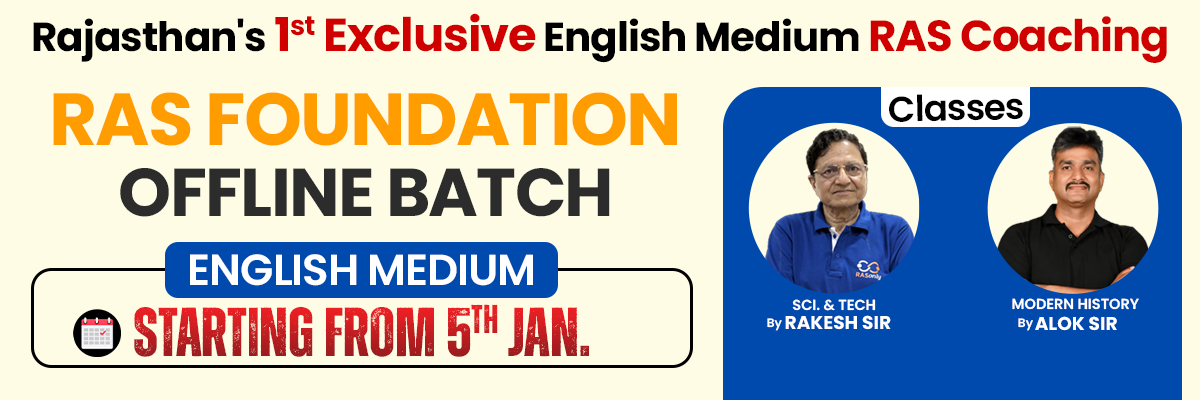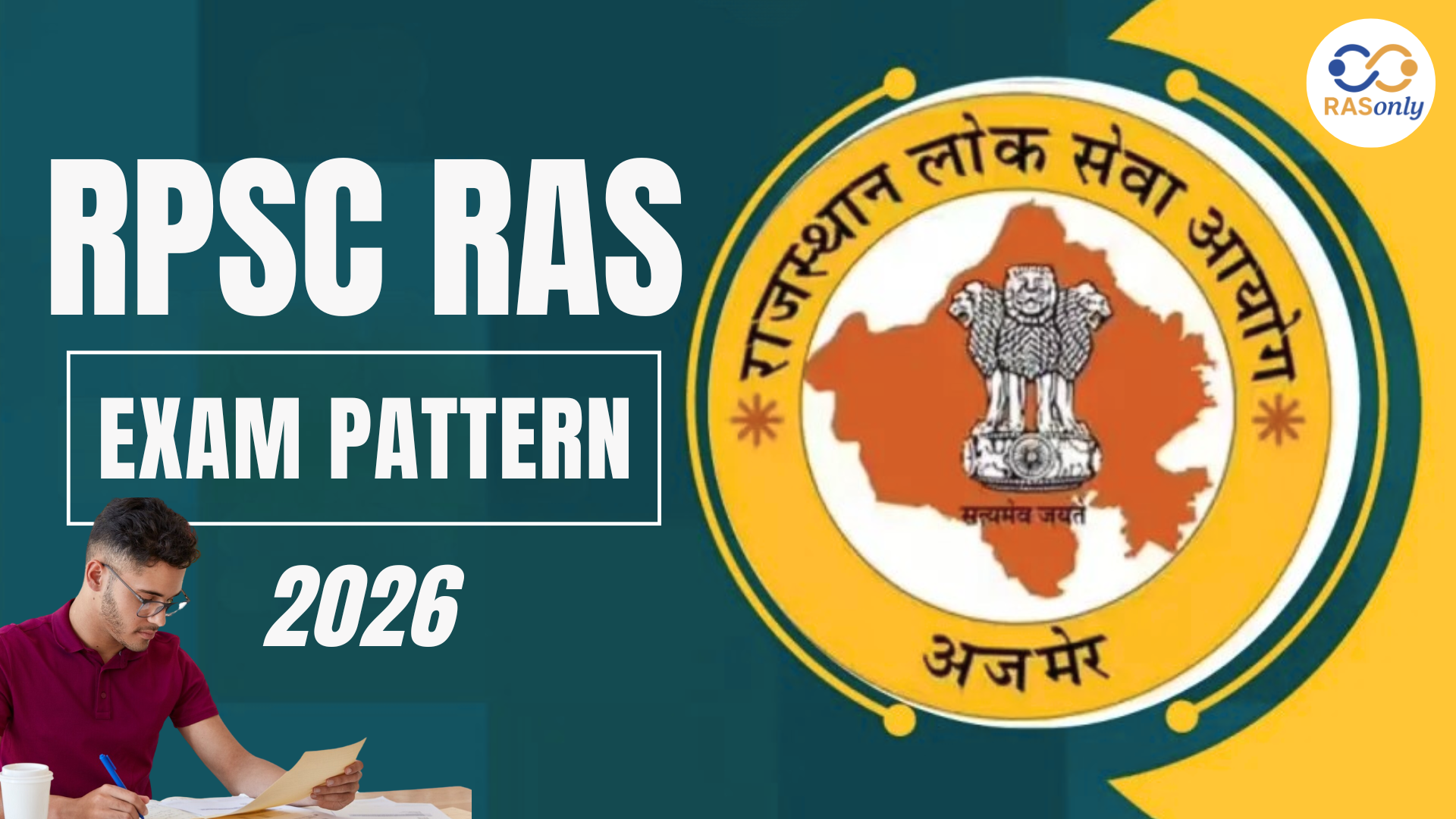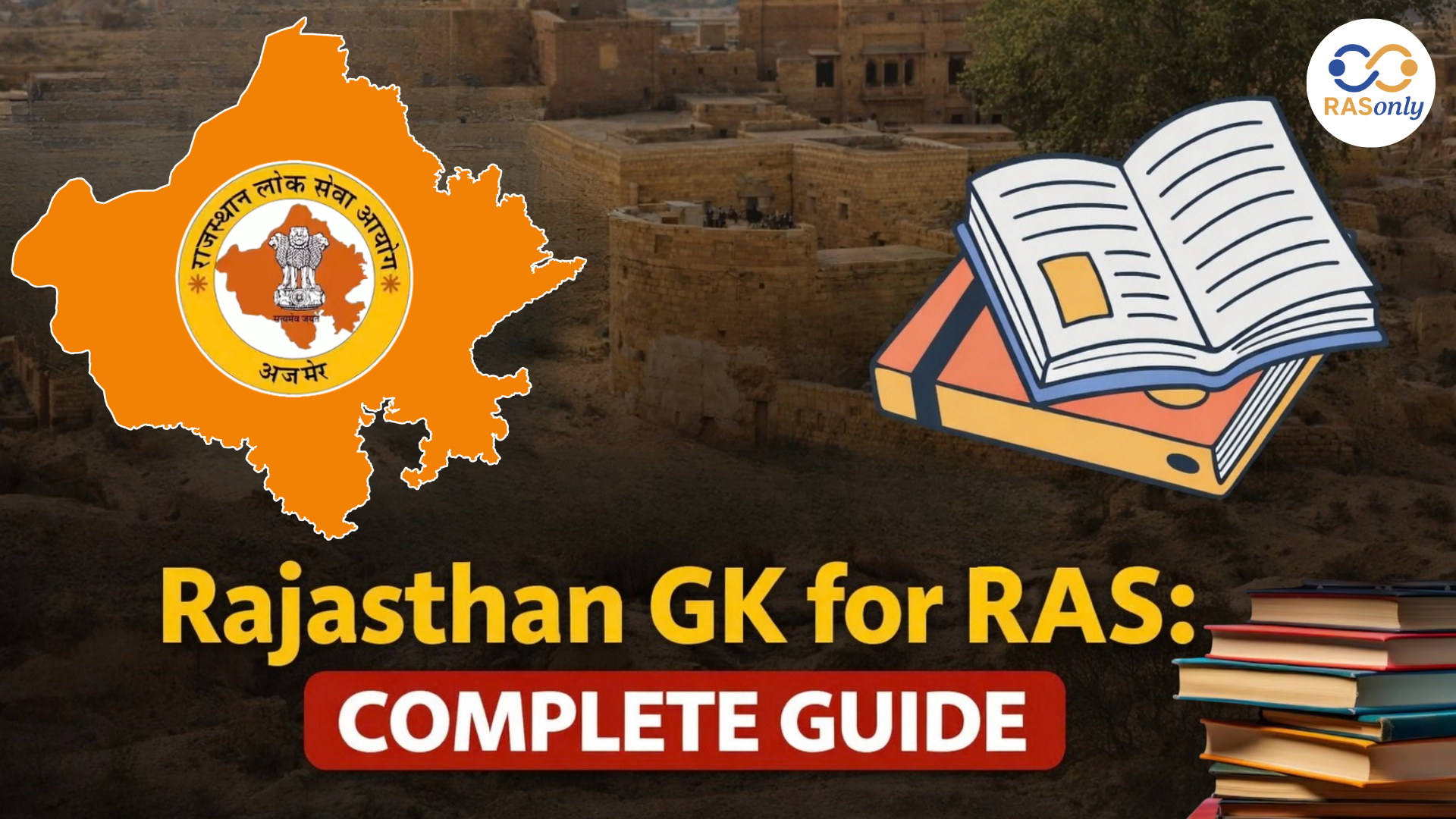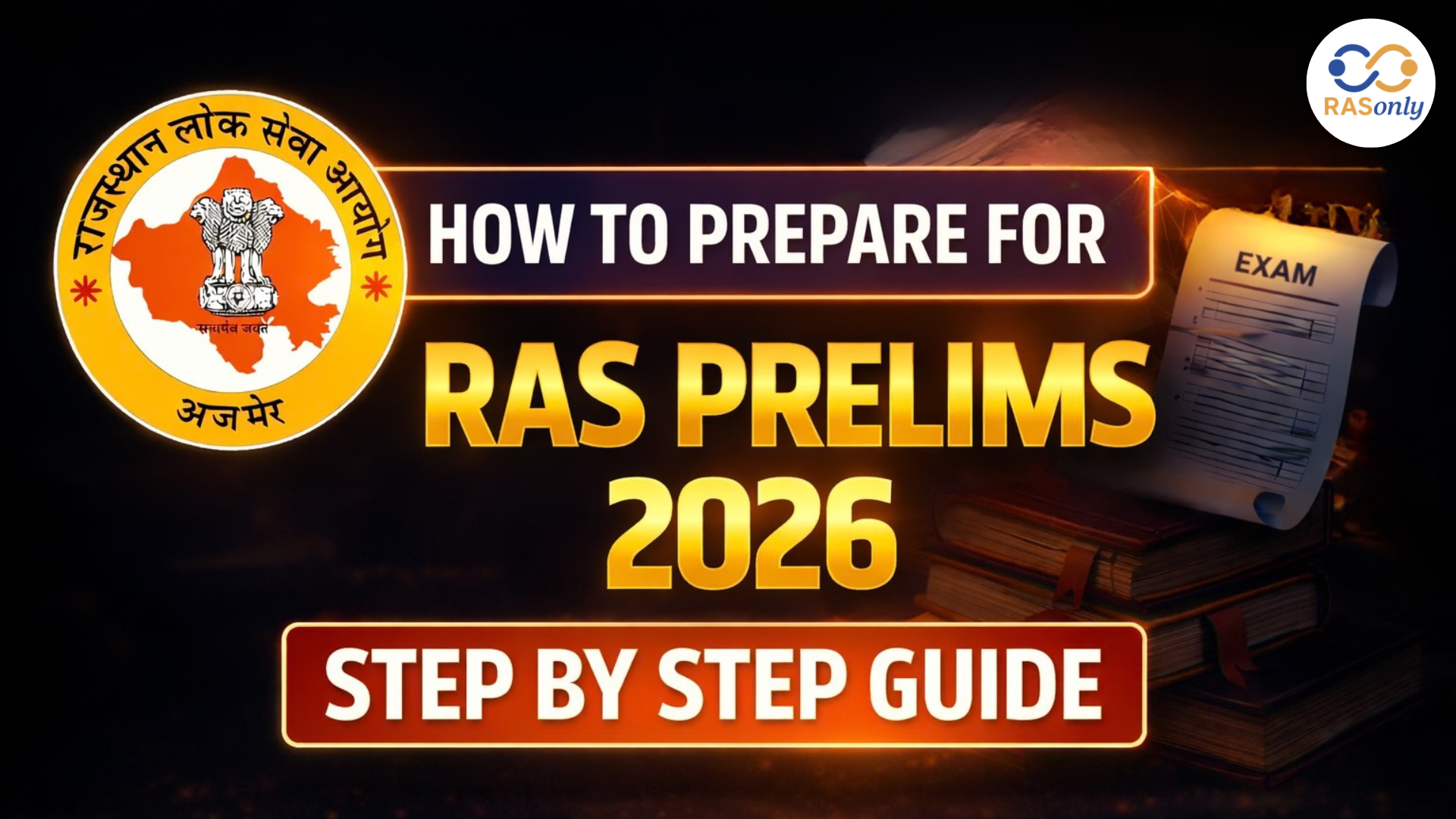RPSC RAS 2026 Subject Wise Exam Pattern for Prelims, Mains & Interview Details
- >
- RAS Preparation Resources
- >
- Rajasthan's 5000 Annapurna Bhandar Yojna
Rajasthan's 5000 Annapurna Bhandar Yojna

Get in Touch with RASonly!

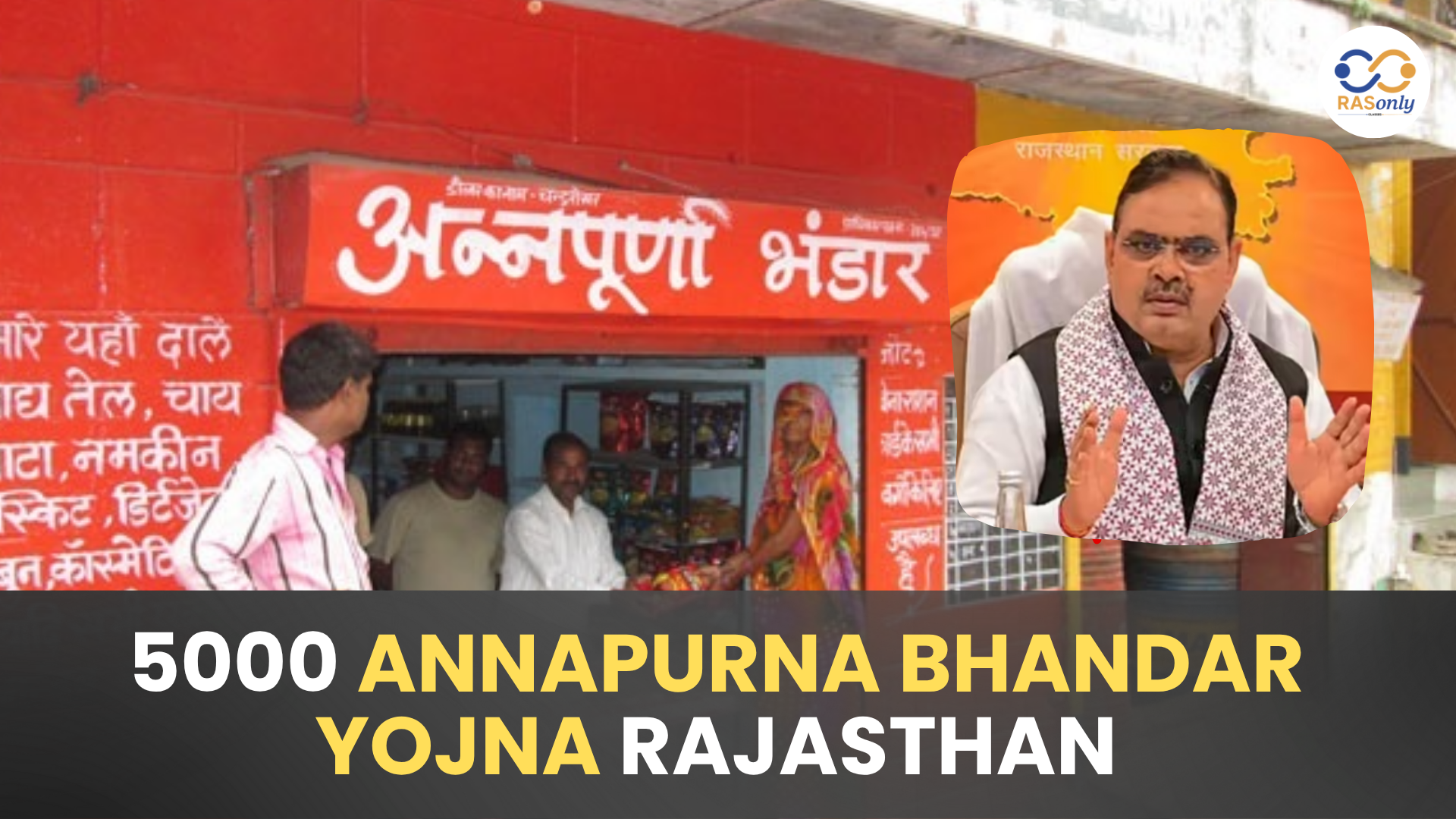
The Rajasthan government has already launched the Annapurna Bhandar Yojna where it intends to have around 5,000 stores within the state where essentials are to be sold without necessarily having a ration card. The purpose of this move is to provide access to quality products at affordable prices to all citizens such as cooking oil, spices and soap. The plan follows an earlier unsuccessful effort in 2015 when the old Annapurna Bhandar scheme was abandoned with sales having to be made at enforced rates and on slightly oversell items. In this case, products will be based on consumer demand so that the scheme can be successful.
Key Highlights for RAS Mains
About 5000 Annapurna Bhandar Yojna in Rajasthan
Scheme Overview:
- 5000 Annapurna Bhandars are going to be opened in Rajasthan.
- The essential commodities such as cooking oil, matches, spices, and soap will be sold.
- Shopping for the items was without a ration card.
Key Features:
- Greater accessibility: Tendency towards accessibility to rural and underserved regions.
- Reasonable prices: This guarantees that the basic commodities would be affordable to every citizen.
- Customer driven: This will involve determination of product range, which will be driven by the demand of the people and hence making them relevant and appropriate.
Implementation and Proposal:
- The project will be initiated with 60 stores being proposed in Tonk district.
- A targeted 5000 retail units will be set up in the Rajasthan state with the aim of ensuring availability of basic commodities at lower rates.
Ration Dealers Impacts:
- More money within the hands of ration dealers.
- Diversifies their range of business to encompass other products that are not rationed.
Issues and Problem:
- Putting in place quality control and affordable prices to be competitive against the local markets.
- The success of the scheme will highly be dependent on transparency and consumer satisfaction.
Legal Aspects and Procedural Aspects:
- The country has established procedural guidelines in the establishment and operation of stores in ensuring quality and standards.
- Proper implementation will be taken care of by regular inspections and audits.
Broader Implications:
- Improves the consumer welfare by exposing them to basic commodities at a reduced cost.
- Allows provision of new income earning avenues to the local businesses and the ration dealers.
Other similar programs for RPSC
|
Program Name |
Implementing Government |
Key Objective |
Date of Implementation |
|
Public Distribution System (PDS) |
Central Government |
Provides subsidized food grains to low-income families across India. |
1960s |
|
One Nation One Ration Card (ONORC) |
Central Government |
Allows beneficiaries to access food supplies from any ration shop across India. |
2019 |
|
Mid-Day Meal Scheme |
Central Government |
Provides free school meals to children to improve nutrition and encourage school attendance. |
1995 |
|
Atal Mission for Rejuvenation and Urban Transformation (AMRUT) |
Central Government |
Improves infrastructure in urban areas, focusing on water supply, sewage, and green spaces. |
2015 |
|
Food Security Scheme |
Rajasthan Government |
Provides food grains at subsidized rates to eligible families in Rajasthan. |
2011 |
|
Jeevan Kaushal Scheme |
Rajasthan Government |
Provides skill development training to improve employability for youth in rural areas. |
2017 |
|
Annapurna Yojana |
Rajasthan Government |
Ensures food security by providing essential food products to the public at subsidized rates. |
2000s |
|
Rajeev Gandhi Gramin Bhumilakshmi Yojana |
Rajasthan Government |
Helps landless farmers by providing them with agricultural land for cultivation. |
2008 |
|
Kheda Kisan Yojana |
Rajasthan Government |
Provides agricultural support, seeds, and tools to farmers in rural areas. |
2010s |
Conclusion
The Annapurna Bhandar Yojna is a move to the right in the direction that proves that not only is necessary commodities being made accessible to everyone but also to all sections of the society, especially the rural and suburban regions. The purpose of the initiative is to strike a balance between quality of the products and demand of the consumers and give the ration dealers some extra income generating opportunities. The government went a long way with this scheme and this time by reintroducing it with the people centric products and without the need of ration card, the government is trying to bring in a great revolution of making basic necessities and encouraging economic well being in the state of Rajasthan
Post Category
- RAS Salary
- Result
- RAS Admit Card
- RAS Job
- RAS Cutoff
- Preparation Tips
- RAS Answer Key
- RAS Exam Analysis
- RAS Syllabus
- RAS Previous Year Papers
- RPSC RAS Exam Pattern
- RAS Interview
- RAS Mains Exam Date
- RAS Vacancy
- RAS Test Series
- RAS Best Books
- RAS Preparation Resources
- RAS Coaching Centre
- History
- Polity
- Geography
- Economics
- Science
- Art and Culture
- RPSC RAS Application Form
- RPSC RAS Notification
RASonly Interview Guidance Program

Mr. Ashok Jain
Ex-Chief Secretary Govt of Rajasthan
- IAS officer of the 1981 batch, Rajasthan cadre.
- Passionate about mentoring the next generation of RAS officers with real-world insights.
- Got retired in Dec 2017 from the post of Chief Secretary of the state of Rajasthan.

Mr. Guru Charan Rai
Ex-ASP / SP in Jaisalmer
- Guru Charan Rai, IPS (Retd), retired as Inspector General of Police (Security), Rajasthan, Jaipur in 2017.
- Served as ASP and SP in Jaisalmer, Nagaur, Sri Ganganagar, Sawai Madhopur, Dausa, Sikar, and Karauli.
- He also held key positions as DIGP and IGP in the Law and Order division.

Mr. Rakesh Verma
Ex-IAS Officer, B.Tech, MBA, and M.A. (Economics)
- IAS officer of the 1981 batch and retired in Chief Secretary Rank.
- Civil servant of high repute and vast experience.
- Has been teaching UPSC CSE subjects for the last six years.
Related Post
Daily Current Affairs for RAS Exam Preparation 2026
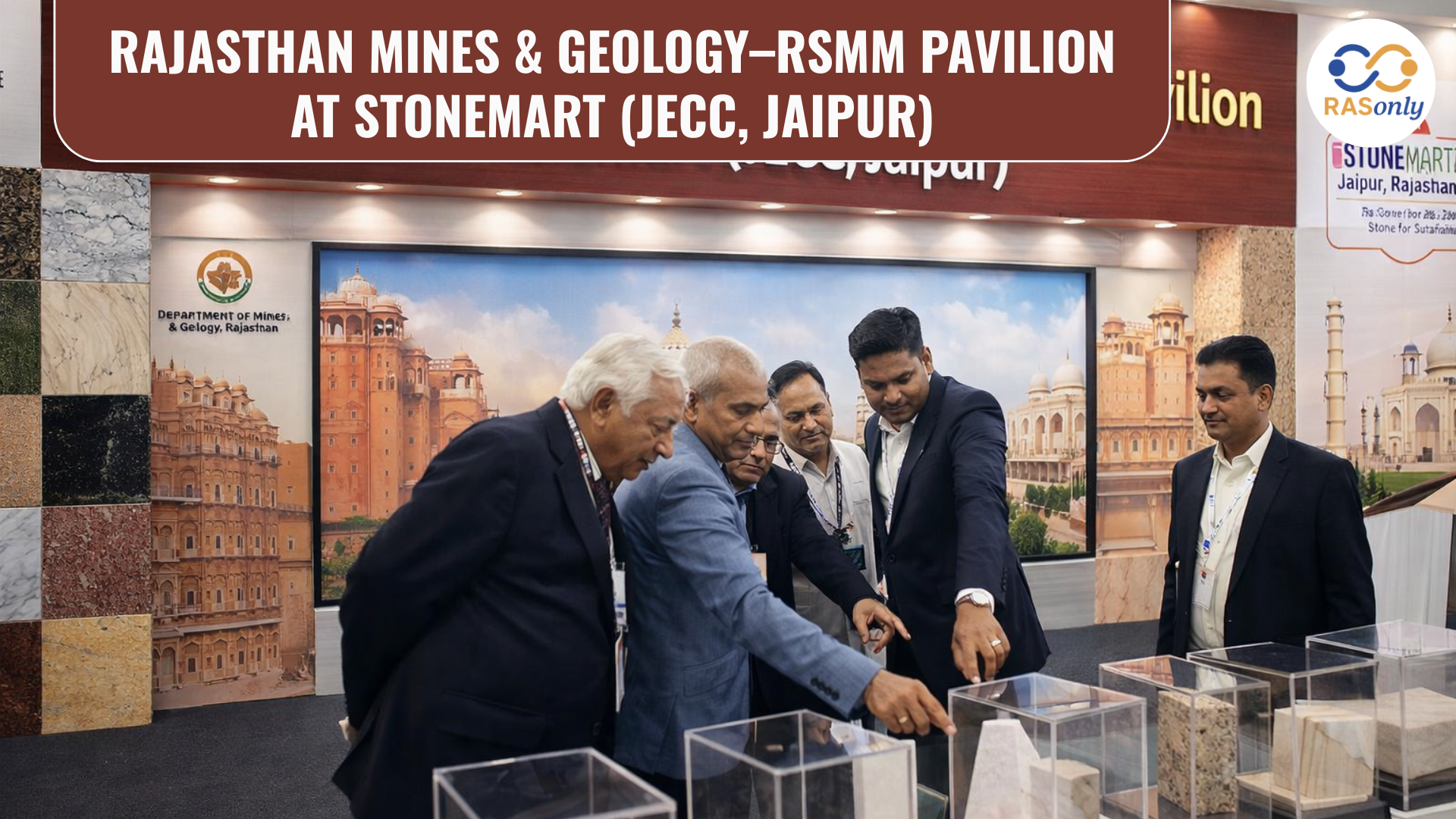
Rajasthan Pavilion Shines at Stone Mart Jaipur 2026
February 07, 2026
Rajasthan Achieves 3,000 MW Under PM-KUSUM Scheme
February 07, 2026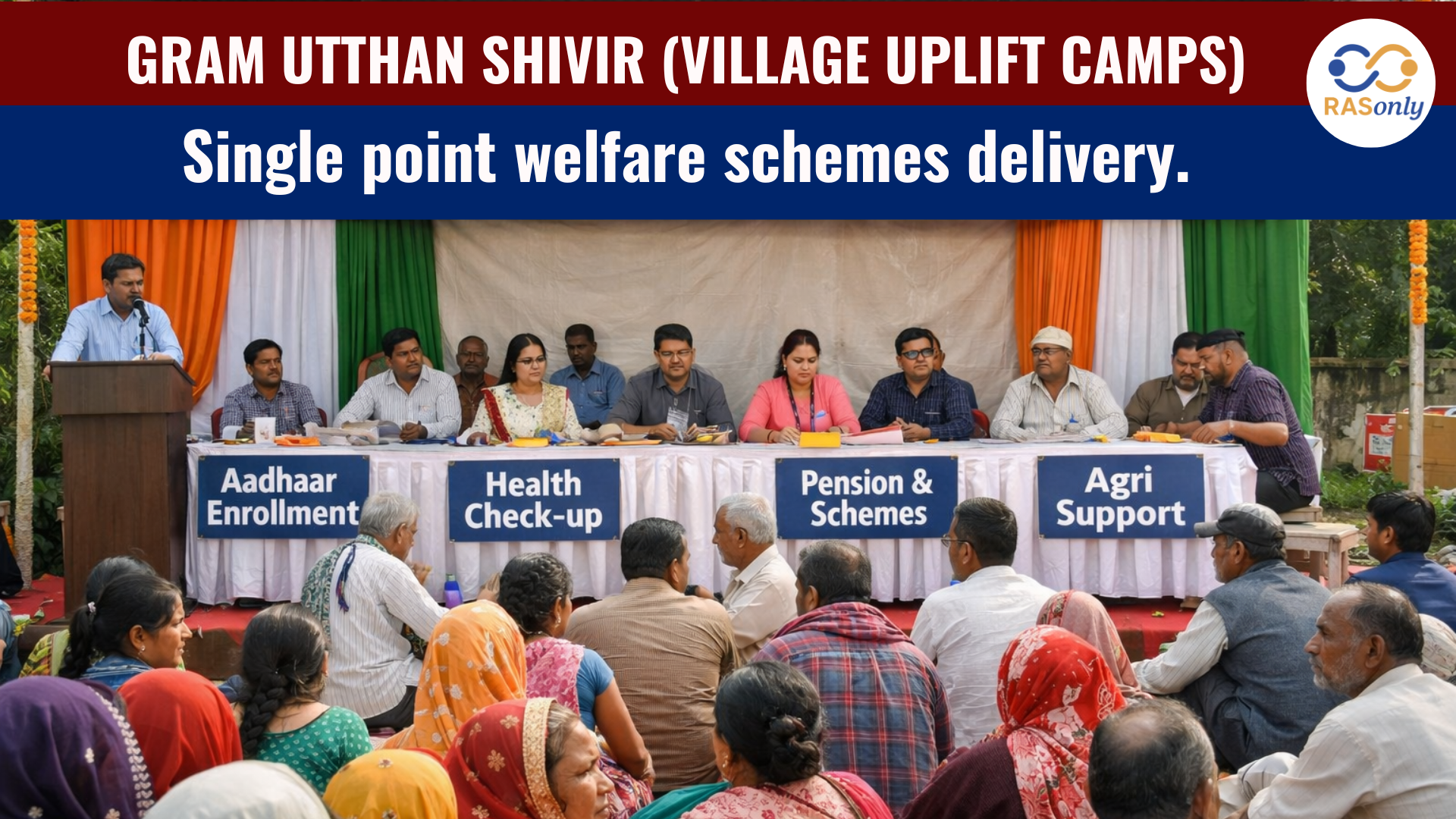
Gram Utthan Shivirs Strengthen Rural Governance in Rajasthan
February 07, 2026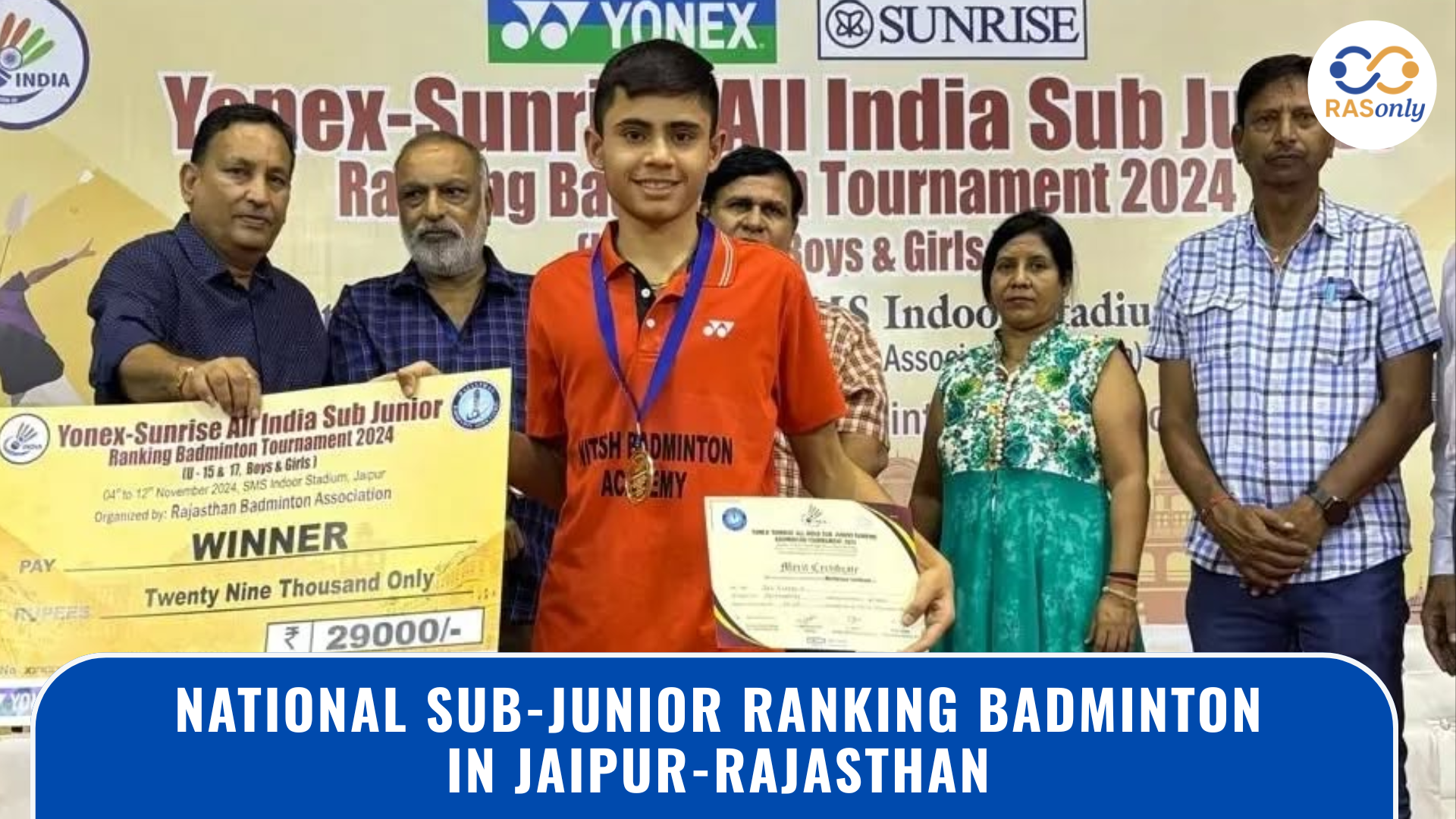
Jaipur Badminton: 72-Minute U-15 Final Creates Record
February 06, 2026👉🏻 Register Today to Join Classes! 👍🏻
- Team RASOnly -
🎯 Benefits of RASOnly Coaching:
- ✅ 1:1 Mentorship with RAS Officers
- ✅ Experienced and Expert Faculty
- ✅ Free Library Access
- ✅ Daily Minimum 4 Hours Must
- ✅ Comprehensive Study Material
- ✅ Regular Tests & Performance Analysis
- ✅ Personalized Guidance & Doubt Solving
- ✅ Online & Offline Class Options
- ✅ Affordable Fees with Quality Education
Key Highlights:
- 👉🏻 3-Day Refund Policy
- 👉🏻 New Batch Starting from 04 August
- 👉🏻 Registration Amount: Only ₹1000




